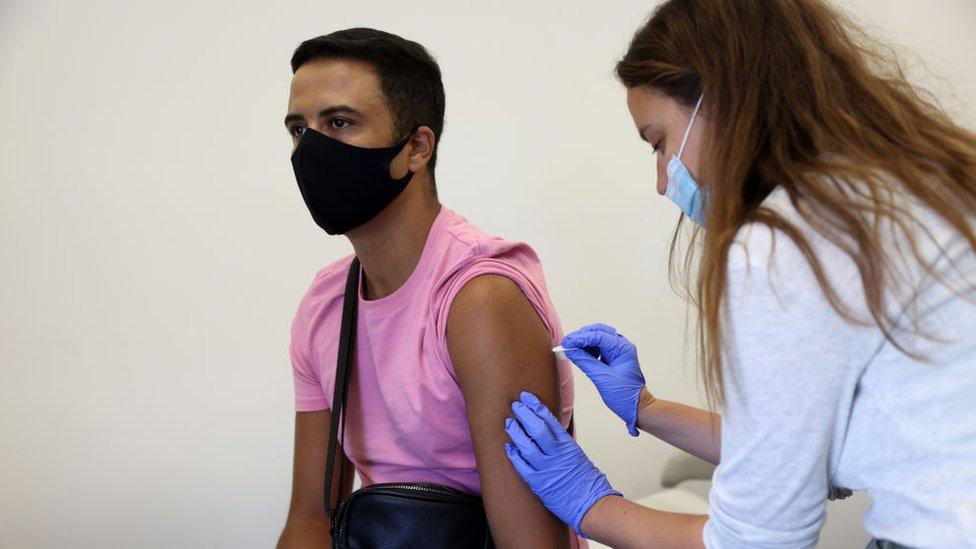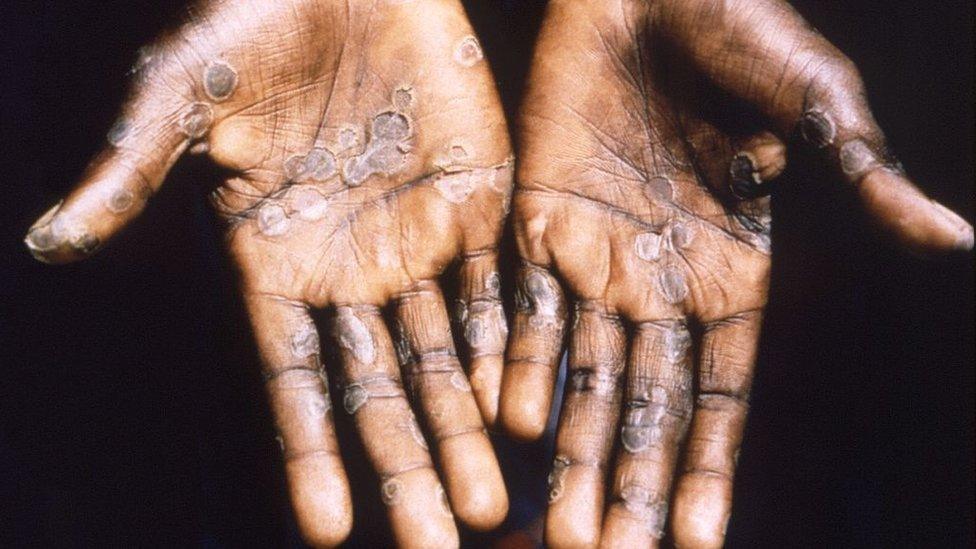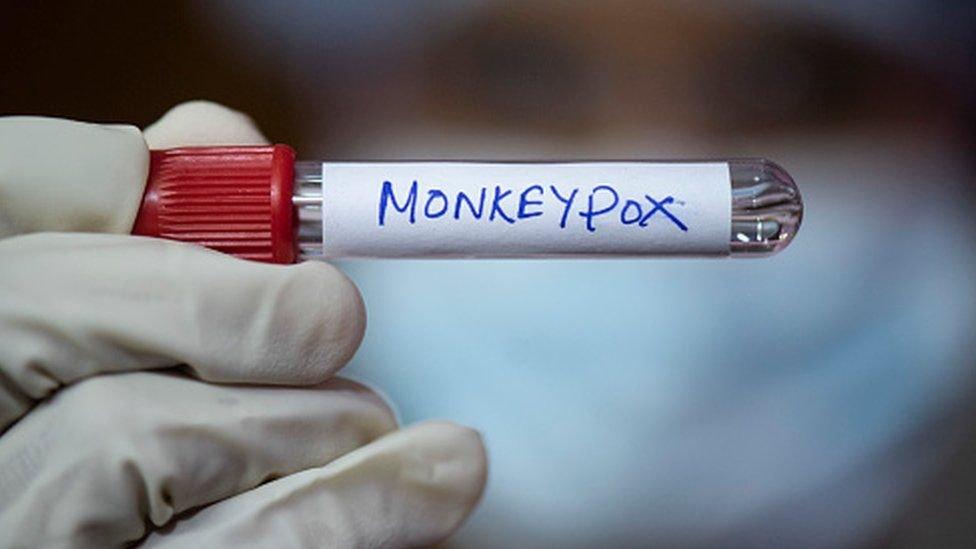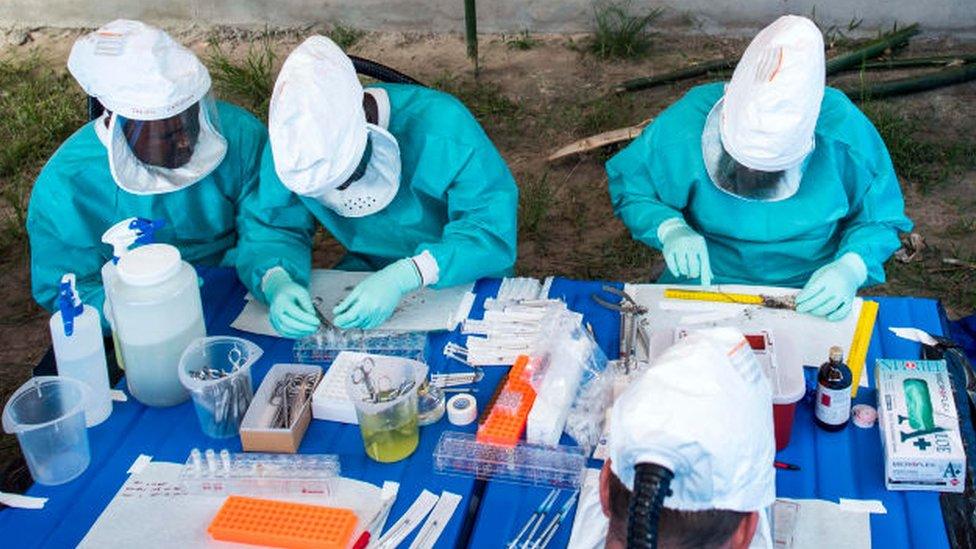Monkeypox vaccine shortage as cases in Scotland increase
- Published

There is a global shortage of monkeypox vaccines
A shortage of monkeypox vaccines means Scotland lacks around half the stock it needs, a senior medic has warned.
The latest figures show 69 people in Scotland have the virus, an increase of two in a week.
Officials are aiming to administer more than 6,000 jags but only around 3,000 have been distributed to the country's health boards.
Men who have sex with other men, along with healthcare workers, are being prioritised for vaccination.
There are global supply issues with the jag because it is only being manufactured by one company.
The UK has placed an order for 100,000 doses that are expected to be delivered next month.
Dr Nick Phin, the director of public health science and medical director at Public Health Scotland, said between 700 and 800 vaccines had been administered.
Of the 69 cases in Scotland, just one was a woman, and most have been concentrated in urban settings. None of the patients are seriously ill with the virus.
The total figure has risen by two since the last update on Friday, external.

Monkeypox cases in Scotland have been concentrated in urban areas
Dr Phin said "most, if not all" of those who were recently infected had been abroad or visited London.
In a briefing to journalists on Tuesday, NHS Greater Glasgow and Clyde health improvement manager Nicky Coia said the hope was to vaccinate between 6,000 and 6,500 people as soon as possible to tackle the outbreak.
Dr Phin said: "Vaccine is in short supply – there's one manufacturing company that had until recently only been producing sufficient stock for a very limited number of countries.
"It has now stepped up its production and in fact most countries globally are almost competing to try and get what they perceive to be needed for their countries."
He added: "Vaccine stock is an issue and will continue to be an issue until the 100,000 doses that have been ordered, and ordered some weeks ago, arrive in the UK."
It is not yet known how many of the 100,000 doses will be allocated to Scotland.

Health officials are working to promote awareness of monkeypox symptoms
Dr Phin expressed said the vaccine is "98-99%" effective.
Mr Coia also stressed the importance of the groups most at risk of contracting the virus taking action to protect themselves.
He urged people who are in sexual networks where monkeypox might be present to reduce the number of partners they would normally have until they get their vaccine.
Mr Coia added: "We would also say that condoms are great at protecting against sexually transmitted infections and HIV, but condoms unfortunately won't protect against monkeypox – so keep using them but it's not the only method of protection."
He also encouraged those at risk of the virus to check their skin frequently for any lesions that could be associated with the virus.
Related topics
- Published6 August 2022
- Published23 July 2022
